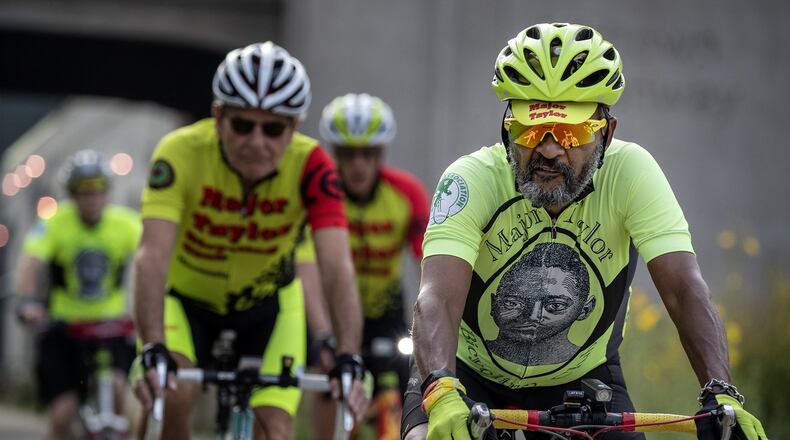On most summer Wednesday nights and Saturday mornings, you’ll find Louis Moore at the front of the pack as he rides along the Midtown Greenway and Minneapolis city streets with members of the Major Taylor Bicycling Club.
That’s fitting since Moore, a lifelong cyclist, has spent the past 20 years leading the bike club that encourages black residents to get out and ride and advocating for amenities that have helped make Minneapolis one of the top biking cities in the nation.
This summer, the Bicycle Alliance of Minnesota honored Moore with its Lifetime Service Award, an accolade that some say was long overdue.
“Louis has been an ambassador for biking in Minnesota … and doing it without any reward or recognition,” said Dacia Durham, a member of the bike club named after Major Taylor, a world champion track cyclist in the late 19th and early 20th centuries.
“It’s about time. He’s done a lot for the Twin Cities bike community and the black community.”
Moore’s efforts included persuading Metro Transit to put bike racks on its buses and convincing CEOs of some of the city’s largest employers to install biking facilities for commuters on their campuses. As a member of the Minneapolis Bike Advisory Committee and the state Bicycle Advisory Board, he was behind the push to get Minneapolis to put bicycle lanes on its streets.
Moore, who at 78 still rides three to four days a week, is most proud of the bike club that he co-founded with Walter Griffin to share his lifelong passion for cycling with others.
Biking “is freedom,” Moore said. “It’s solitude, time to reflect and enjoy some private time.”
More than that, biking is a sport for all ages and a way to stay fit and healthy.
“In the black community, obesity and heart disease are prominent,” Moore said. “We sell people on the premise that you need to do something to offset that. We know it is important to do something other than open a can of beer.”
The Minneapolis chapter of the bike club is one of about 60 across the United States.
Naturally, the group started small and, in its early days, raised a few eyebrows. Once, a Minneapolis police officer saw club members clad in their distinctive bright yellow, red and green jerseys out for a leisurely ride. The officer stopped to ask if they were a new type of gang.
“That was his reaction to seeing black people on a bicycle,” Moore said.
A lot has changed since then. The club now sporting about 70 members is well-known throughout the city. Members often help out at community events.
The club has diversified quite a bit, too. About half of its current members are minority members and half are white. It’s also a little gray.
“It’s harder to reach young people,” Moore said. “Technology has taken over and it’s hard to get them away from the screen. We’d love to have them.”
About the Author
Keep Reading
The Latest
Featured


